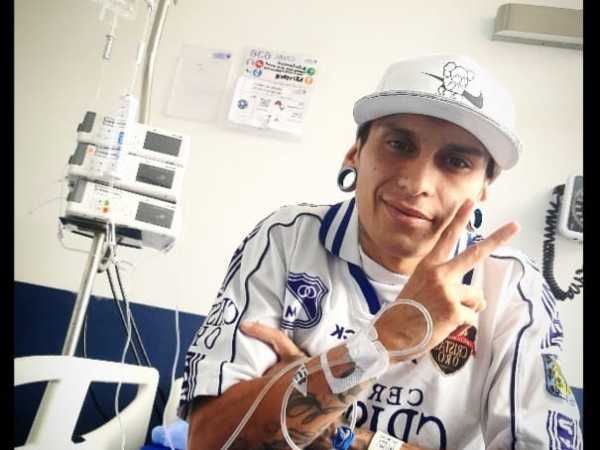The bacteria caused other conditions that deteriorated his health, leading the young man to make the difficult decision to undergo euthanasia.
News Colombia.
Recently, the moving story of Javier Acosta, a young Millonarios fan, was made known. After a serious illness, he decided to undergo euthanasia. It all happened when he went into a swimming pool one day while out and about and contracted a serious infection.
Read also:
Days later, when she arrived home in Bogotá, a large ulcer had appeared on her left buttock and, after several procedures, it spread to her right buttock and even affected her bones.
The bacteria that the young man contracted is called Candida aurisAccording to the National Institute of Health of Colombia, it is “an emerging multi-resistant yeast (fungus) that is related to invasive infections associated with health care and high mortality.”
They indicate that the bacteria is difficult to detect with methods that medium-complexity laboratories do not have and that it could be wrongly identified as another species. “It is resistant to most antifungals commonly used to treat infections by Candida spp.»
Over time and after several tests, Javier was diagnosed with blood cancer, an infection also known as osteomyelitis. The symptoms he presents are fever, inflammation, pain in the area of infection and fatigue.
How a person becomes infected with Candida auris and what is its prevention?
According to the National Library of Medicine, MedlinePlus, the bacteria Candida auris It can be spread from person to person or through contact with objects or equipment. “Hospitalized people and those living long-term in nursing homes can be colonized by C. auris. They can spread it to objects in the facility, such as bedside tables and handrails. Health care providers and family members and friends who are in contact with a person with C. auris They can pass it on to other people in the facility.
They note that once the infection enters the body, it can cause serious infection in the bloodstream and organs.
Some of the steps to prevent infection are:
- Wash your hands thoroughly with soap and water. Or, use an alcohol-based hand sanitizer. Do this before and after contact with people who have this infection, and before and after touching any equipment in your room.
- Make sure providers wash their hands or use hand sanitizer, gloves, or gowns when interacting with patients. Don’t be afraid to speak up if you notice lapses in good hygiene.
- If a loved one has an infection Cowrieshould be isolated from other patients and kept in a separate room.
- If you are visiting a loved one who has been isolated from other patients, please follow the healthcare workers’ instructions about the procedure for entering and leaving the room to minimize the chance of spreading the fungus.
- These precautions should also be used for people who are colonized with Cowrie until your provider determines that you can no longer spread the fungus.
You can also read:

















